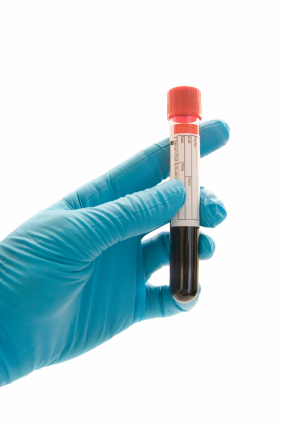by
Brendon Nafziger, DOTmed News Associate Editor | June 04, 2010

Blood test may beat
imaging in cancer prediction
A blood test could detect about half of lung cancers up to five years before other tests, according to a team of British scientists.
In a series of papers to be presented Sunday at the annual meeting of the American Society of Clinical Oncology in Chicago, the scientists from the company Oncimmune tout their "Early CDT-Lung Test" for finding around 40 percent of lung cancers years before they show up on CT scans.
The company hopes the test, commercially available in the United States starting Tuesday, will not only save lives by detecting cancer early, but drive down health care costs.



Ad Statistics
Times Displayed: 173306
Times Visited: 3160 For those who need to move fast and expand clinical capabilities -- and would love new equipment -- the uCT 550 Advance offers a new fully configured 80-slice CT in up to 2 weeks with routine maintenance and parts and Software Upgrades for Life™ included.
The test works by looking for antibodies, called auto-antibodies, which the body produces to combat cancer.
As Geoffrey Hamilton-Fairley, executive chairman of Oncimmune, explained to DOTmed News, cancer cells divide rapidly. During division, they release antigens that the body recognizes as foreign, which it combats with auto-antibodies.
"Everybody has a background count of these auto-antibodies," Hamilton-Fairley said, which actually increase as we age, possibly because our bodies are fighting off many less aggressive cancers successfully.
The research originated with John Robertson, a professor at the University of Nottingham. As part of their yearly check-up, his patients at high-risk for breast cancer had their blood drawn. If they came down with cancer, Robertson went back to their blood samples and retroactively tested them for the auto-antibodies, finding that over half of the cancers could have been found four years before diagnosis.
For the current test, patients have their blood samples mailed to Oncimmune's U.S. testing facility in De Soto, Kan., just outside Kansas City.
The researchers then choose a selection of around six antigens that they pass a patient's blood sample over. If auto-antibodies are present, they'll bind to the antigens. After doing this a few times for accuracy, researchers develop the patient's antigen "fingerprint." This fingerprint is then compared against a population cut-off to judge the patient's risk for developing cancer.
Eventually, physicians will compare a patient's fingerprint against those taken from previous years, and not just population cut-offs, for more accurate readings, Hamilton-Fairley said.
"We'll end up with your own individual antigen fingerprint," he said, "and you'll be able to compare that year by year, and over time you'll pay more attention if you stray from the personal profile."
For now, they recommend one test about every five years, but as the patient ages or if there are risk factors - specifically, smoking - doctors might look at it more often.

